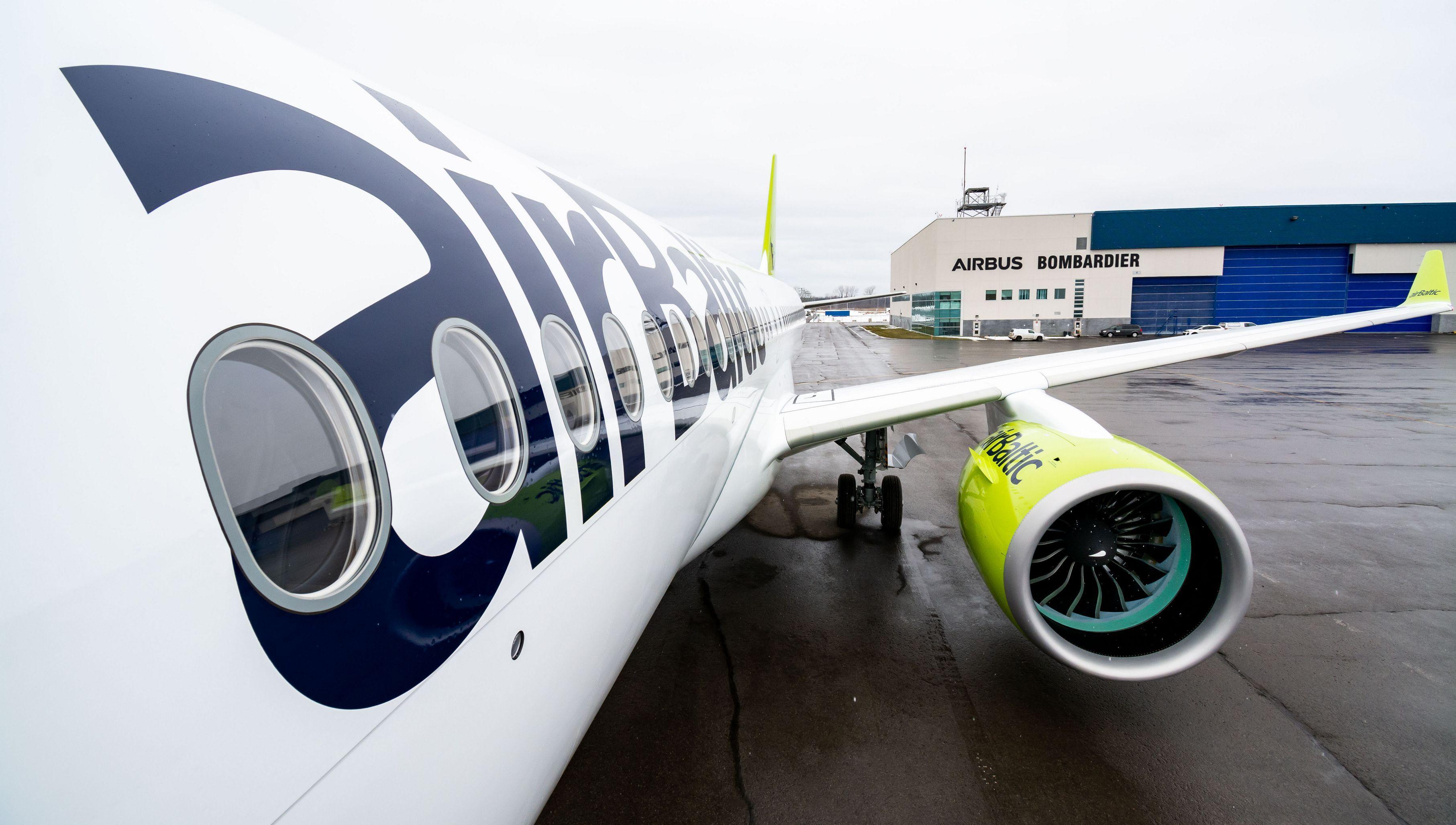
WASHINGTON—The FAA has fast-tracked a mandatory software upgrade developed by Pratt & Whitney to address PW1500G inflight shutdowns linked to variable inlet guide vanes, including one in February on an Air Baltic Airbus A220-300.
Under FAA’s airworthiness directive, set for release Mar. 31, affected operators will have as little as 15 flight cycles to upgrade electronic engine control (EEC) full authority digital electronic control (FADEC) software. The FAA order covers only U.S.-registered A220s but is likely to be adopted worldwide.
In all four incidents, low-pressure compressor (LPC) stage one rotors (R1s) failed. Subsequent checks of other engines found more cracked R1s.
“Analysis by the manufacturer determined that the LPC vane schedules”—FADEC software settings that adjust vanes to maximize engine efficiency—"were putting the engine in a condition to experience an acoustic resonance that damages the LPC R1, which then leads to LPC R1 failure,” the FAA explained.” In response, the manufacturer updated the EEC FADEC software to improve vane scheduling to avoid acoustic resonance.”
Pratt issued a software-upgrade recommendation to operators in early March. The FAA directive, which applies to all PW1500s, is based on the recommendation.
Upgrade deadlines vary based on engine history. In all cases, the LPC R1 failures occurred on engines shipped to operators as spares, not installed on the aircraft assembly line, and each occurred within 300 flight cycles.
Pratt “has recommended that the new engine software be loaded into the engine as soon as the engines are installed on an aircraft or within 15 [cycles] after installation if the engine was installed onto an aircraft recently,” the FAA said. “These engines are the highest risk for LPC R1 failures.”
The rest of the fleet must have FADEC software upgraded within 90 days of the directive’s effective date, or by July 14, the FAA said.
The Feb. 12 Air Baltic incident happened when the aircraft was en route from Riga, Latvia to Malaga, Spain. The captain shut down the left engine and diverted safely to Bordeaux, France.
In October 2019, Pratt-recommended restrictions were mandated by Transport Canada and others following the third incident in three months involving Swiss International Air Lines A220-300s. The restrictions limited engine N1 settings to 94% while operating above 29,000 ft.
An earlier mandate ordered inspections of LPC Stage 1 rotors and inlet guide vanes on engines with fewer than 300 cycles.
The U.S. NTSB is investigating all four incidents.





